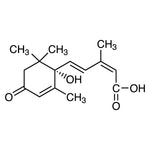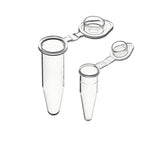You have no items in your shopping cart.

When we think of the Easter Bunny, images of pastel eggs, candy baskets, and springtime cheer come to mind—not scientific breakthroughs.
It turns out that rabbits—real ones, not the candy-carrying kind—play a crucial role in modern biomedical science. Specifically, they are behind some of the most powerful tools in cancer research and diagnostics: rabbit monoclonal and polyclonal antibodies, which Biofargo proudly carries.
The Magic of Rabbit Antibodies
Antibodies are proteins produced by the immune system to detect and neutralize foreign substances like bacteria, viruses, or cancer cells. In science and medicine, we harness this natural defense mechanism by creating lab-made antibodies that can bind with incredible specificity to target molecules—like tumor markers.
For researchers, this is where rabbits play a crucial role.
🧪 Rabbit Polyclonal Antibodies
Polyclonal antibodies are a mixture of antibodies produced by different B-cell clones in an animal. When a rabbit is immunized with an antigen (a molecule of interest, such as a cancer marker), its immune system produces a diverse range of antibodies targeting different parts of that antigen.
Why use rabbit polyclonals?
-
High affinity and sensitivity: Rabbit antibodies often bind more tightly to antigens than those from other species.
-
Broad reactivity: Their immune systems can recognize and respond to subtle molecular differences better than, say, mice or goats.
-
Ideal for rare or weak antigens: In cancer research, detecting low-abundance proteins can make all the difference.
🧬 Rabbit Monoclonal Antibodies
Monoclonal antibodies are uniform—produced by a single B-cell clone—and target a single epitope on an antigen. For years, mice were the gold standard for generating monoclonal antibodies. But recent advances in biotechnology have made it possible to generate rabbit monoclonal antibodies, which combine the best of both worlds: the high specificity of monoclonals and the superior binding strength typical of rabbit antibodies.
Benefits of rabbit monoclonals:
-
Superior epitope recognition: They often detect epitopes missed by mouse antibodies.
-
High-affinity binding: Makes them excellent for precision diagnostics and therapies.
-
Better performance in immunohistochemistry (IHC): Rabbit antibodies yield cleaner, sharper signals in tissue samples—critical for identifying cancer cells under the microscope.
Hopping Toward Cancer Cures
So how exactly are rabbit antibodies helping fight cancer?
-
Diagnostics: Rabbit antibodies are used in pathology labs worldwide to detect cancer markers in biopsies. Their clarity and precision help doctors make accurate diagnoses.
-
Drug Development: Rabbit antibodies help researchers understand how tumors grow and how they evade the immune system—essential knowledge for creating new cancer therapies.
-
Targeted Therapies: Some rabbit monoclonal antibodies are being explored as direct cancer treatments, especially when high affinity and unique binding profiles are needed.
-
Ethical Considerations: It’s important to consider the ethical implications of antibodies, which is that we prioritize animal welfare, explore alternative methods (like recombinant antibodies), and ensure transparency in their research practices. This includes minimizing animal suffering, maximizing the benefits gained from research, and adhering to ethical guidelines and regulations.
The Easter Bunny’s Legacy, Reimagined
While the Easter Bunny may not be donning a lab coat anytime soon, rabbits play a crucial role in antibodies research—and helping find a cure for cancer. At Biofargo, we proudly ethically source rabbit antibodies to help cancer researchers and scientists who need antibodies for their work.


























